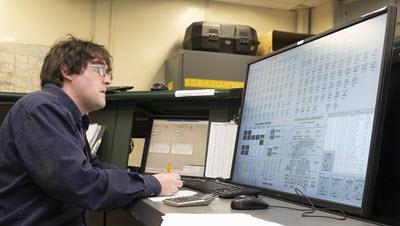Get to know your IPF crews: T.B. Simon Power Plant Operations
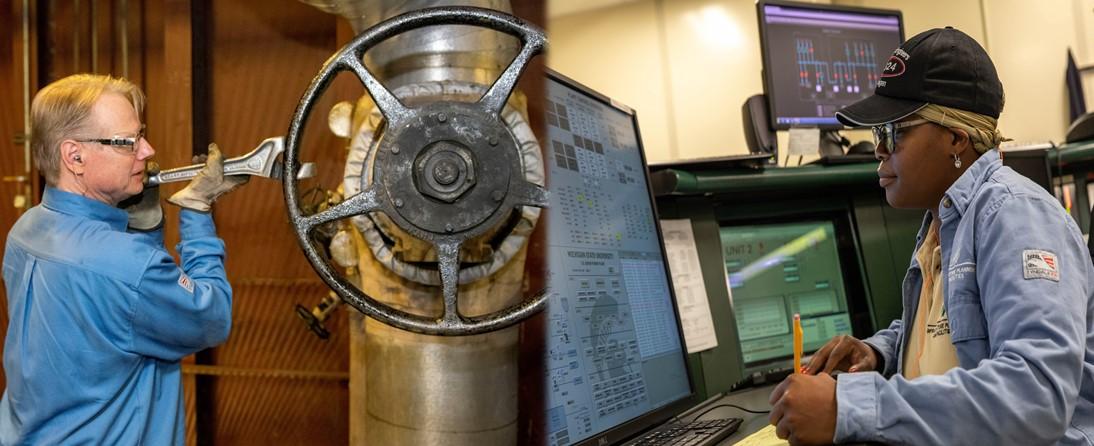
Jim Nowicki and Cher Briggs
Anthony Yuhasz
January 15, 2020
“The IPF Power and Water crews are invisible heroes who routinely sacrifice personal and family time to keep the campus supplied with heat, electricity and water 24/7/365.” – Sherri Jett, director of Utilities.
Power Plant operations – a team of four, 12-hour-shift, four-person crews, keeping campus utilities up and running all day, every day.
Electricity and water for the morning java that brings you to life, power to keep your smartphone alive for that 17th selfie of the day, heat and light that make that 8 a.m. meeting doable (if not tolerable) – these crews help make that all possible:

Each crew is responsible for closely monitoring the plant’s various systems – boilers, turbines, generators and cooling towers, as well as levels of steam, water and electricity that is produced in-house and purchased from the local grid. They regularly make adjustments so that production keeps pace with demand.
Their job also includes routinely making plant rounds – taking readings from systems not remotely monitored; looking and listening for potential problems such as oil, water and steam leaks; and catching problems before they threaten operations.
“You can often tell something’s not right just by the sound it’s making,” Trout said. “That can alert you to potential problems that can be remediated before they have a chance to become big issues.”
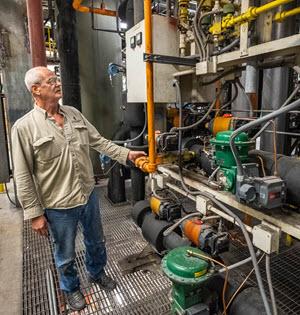
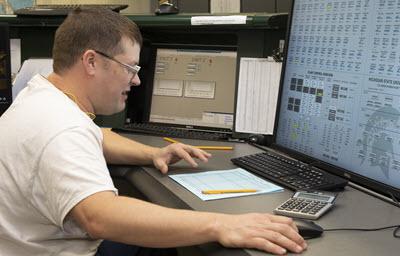
The crews also monitor campus wells and the campus reservoir. There are several wells in production at any given time, and wells are routinely taken offline for water testing and preventative maintenance. There are also four pumps that distribute water from the reservoir out to campus.
“With the new water filtration plant and tower, the reservoir and its pumps will eventually be decommissioned, and staff at the water plant may end up taking over water monitoring operations,” Zamarripa said.
Most of the time, the plant runs smoothly, but when trouble strikes, crews spring into action.
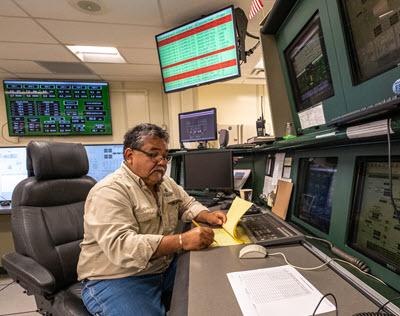
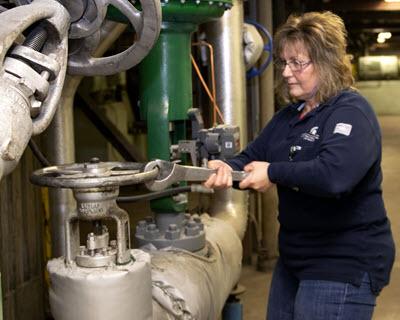
First, isolating the problem to prevent further damage and shutting down or starting up components and backup systems as needed. Once the issue is identified, remediating actions are taken to ensure that the plant continues to provide as much steam and electricity as is needed, purchasing additional electricity from the local grid when necessary, until the problem can be fixed.
“It takes good communication between crew members, people who have worked together long enough to understand each other’s skills and roles and have built up a high level of trust with one another,” Jones said. “We can’t really practice for these problems, most are so unique, but having a crew that works as one unit, along with years of experience in the job, enables us to tackle most any issue that comes up.”
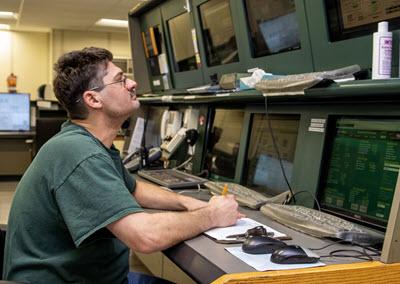
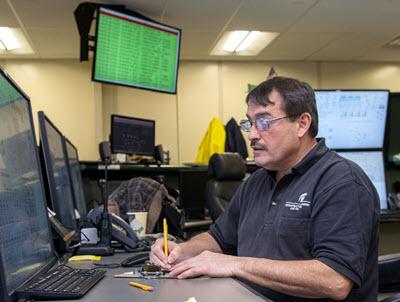
“The ultimate goal is that campus customers get what they need, and never know that there’s been a problem,” Zamarripa said.
Crews operate on what is known as a DuPont Schedule which repeats every four weeks. Each crew’s schedule is staggered to ensure that there is 24-hour coverage, holidays included.

This type of swing-work requires crew members to work completely different shifts interspersed with varying amounts of time off, and because four workers must always be on duty, they often work substantial overtime. When someone is ill or needs time off, someone from a different crew must cover for them; and that overtime can come at any time, day or night.
“The overtime comes with the job,” Zamarripa said. “Something inevitably comes up with yourself or a family member. We’re all understanding and help each other out.”
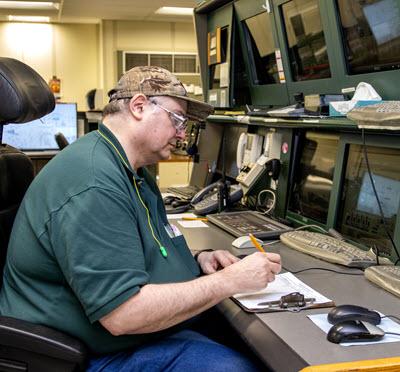
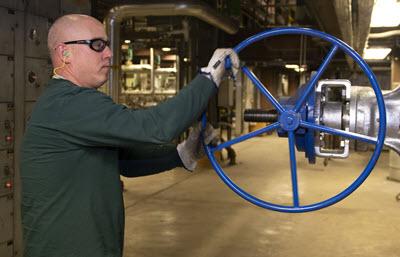
Certain shifts can only be covered by certain other shifts; workers must have at least eight hours off between shifts and cannot work more than 16 hours at a stretch.
“We give up a lot of our social lives,” Jones said. “If you work all of your overtime, you are lucky to get four to eight weekends off per year.”
Sacrifices aside, these folks are dedicated to what they do.
“I really like this kind of work,” Testa said. “Your skills are always tested, your attention is always taken, and you never know what might happen.”
